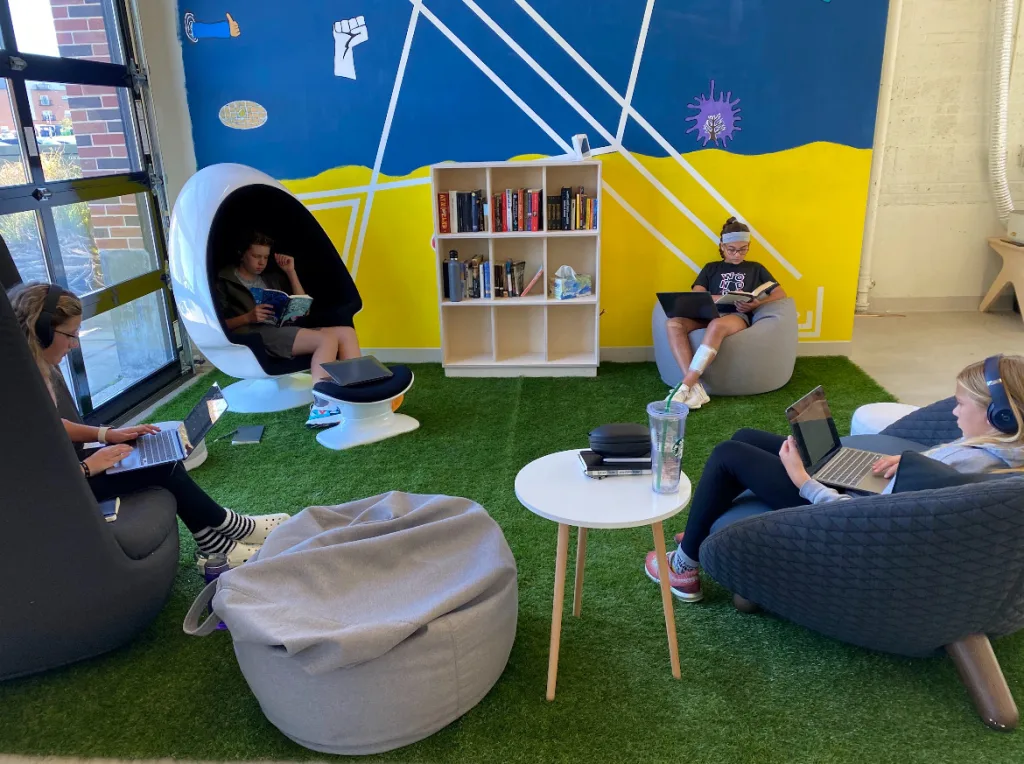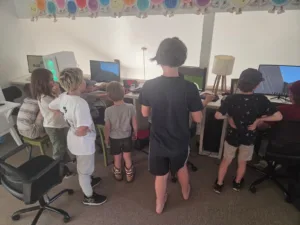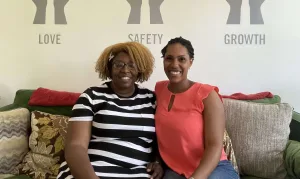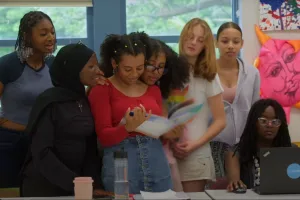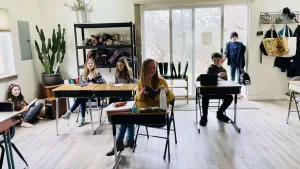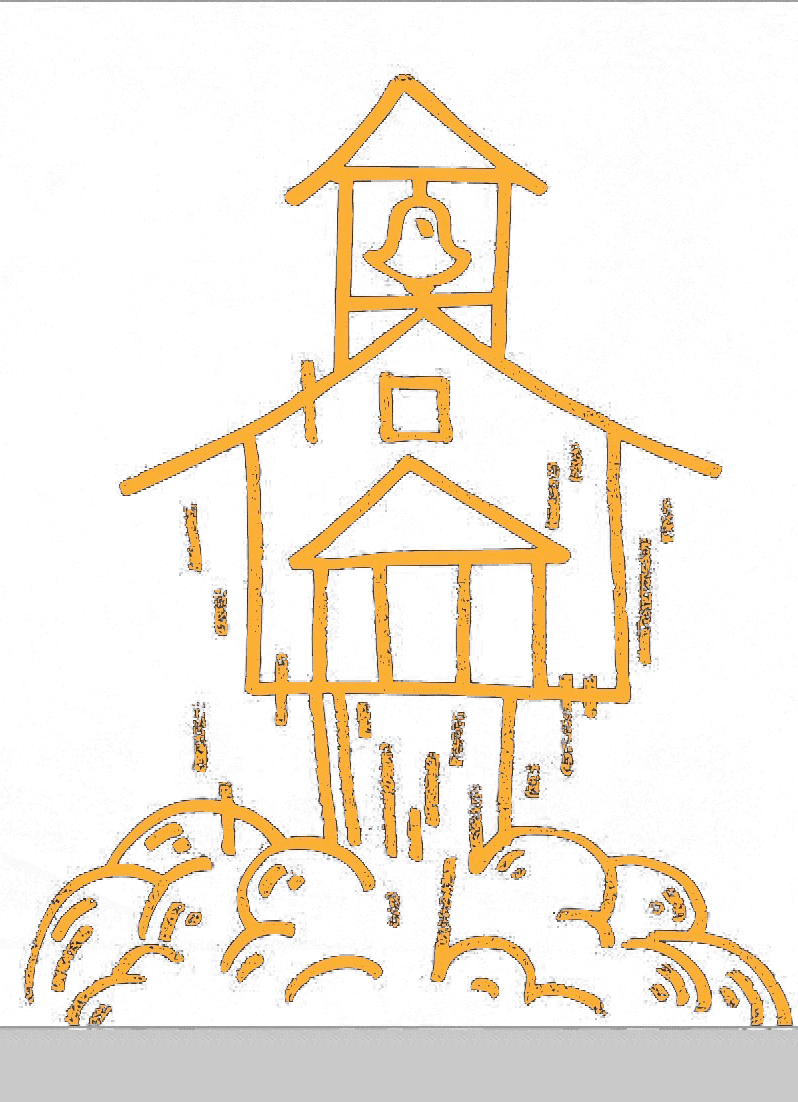It was a hot summer day, a few weeks out from my first day of fifth grade, when my parents shocked me with some unexpected news: they were strongly considering sending my younger brother and me to a new school. I pouted and strongly disagreed. “But my friends!” I pleaded with my parents. “And what about the fifth grade graduation ceremony I have been looking forward to since kindergarten?” I guess my pouty face was not compelling enough, because my parents had made their decision: we deserved better than traditional education, and the best option for us was an Acton Academy school that was preparing to launch in my hometown.
At the time, it felt like my world was ending, but little did I know that my parents were going to be giving me the greatest gift any person could ask for—a calling and a yearning to learn.
September 4, 2018, was my first day at this new Kansas school named Wonder, part of the global Acton Academy Network. Upon arrival, we walked through the big front gate while our parents watched us from their cars. Then, we hung our bags on a large peg wall where the pegs spelled out the word “Wonder,” and we walked inside of a studio—nothing like a classroom—called “Atlas,” where we found a variety of seating options, different types and sizes of desks scattered around the space, and a massive whiteboard attached to one entire wall of the room. At 9:00 AM, we found a seat in one of the fluffy gray bean bags organized in a circle and prepared for our first morning launch—a Socratic discussion where we practiced critical thinking.
On this first morning at the brand-new school, we—my brother and I, and ten other pioneering learners—were told something that none of us had ever been told before: we are all heroes on a journey and geniuses who will someday change the world. These are some vibrant and big words, yet our founders and the three guides said them with such confidence that we felt it in our soul that their words must hold truth.
Later during this first week, we began to learn more about the structure of this school, which felt so foreign to me at the time. I was seriously questioning whether this place could be called a school after I had learned that there were no tests, grades, homework, or lectures, and that we were able to move at our own pace. We even called our teacher-figures by their first names! Truly, this place wasn’t a school; it was something so much more—like a tribe of a new civilization.
For the first couple weeks of school, we would meet at the end of the day during our “closing” discussion at 3:15 PM and discuss what we wanted our studio to look like. How should we treat each other? What rules should we follow and hold each other accountable to? What systems do we need to keep our studio sacred? Once we had finished creating our studio’s governing systems, the guides printed and framed them for a later signing ceremony at the end of the session.
Every four to six weeks, we would dive into one major topic for our afternoon “Quest” and our morning “Writer’s Workshop,” and each session was capped with an exhibition—an event where we would present our work to our parents, friends, and the community. The first exhibition was something so unique to all of us at the time, something scary and challenging. With each exhibition, we faced the challenge of publicly speaking to a room full of adults, a serious life skill that only a few have mastered.
This first session was spent tackling a project that we believed would improve the world in some way. Some learners designed products or systems that would improve waste/recycling, others made products in relation to safety, and my peer and I created a transformative bench that would help people who are homeless. Every afternoon was spent working with our hands, building, cutting wood with bandsaws, designing 3D models to print, or laser-cutting specific designs. We weren’t sitting at desks taking notes or typing on our computers all day; instead, we were actually learning real-world skills, taking initiatives to improve the world, and enjoying it all in the process.
By the end of the first year, all of us had built something that we believed would solve a problem in the world. We started our own business from scratch, built a garden, created our own magic tricks, participated in hundreds of thought-provoking Socratic discussions, solved arguments through conflict resolution, felt more comfortable speaking publicly, discovered that through challenge, not comfort, is where growth happens, and most importantly, found a love for learning. School had a different meaning to me.
In the coming years, I moved up to our upper-elementary studio and then shortly onto our middle school studio with three other pioneering learners. Everything in this studio was self-scheduled based on our own motivation. I started to find an exceptional drive to complete my work, truly learn from it, become a leader for the school, and complete everything with excellence. Middle school was where I felt like I was actually starting to understand leadership and to take initiative. I worked in a law firm throughout my middle school years, part of the apprenticeship challenge that my peers and I were tasked with pursuing. Additionally, these years are when I started to realize that Wonder was like an additional home—a place I thrived in and enjoyed.
In 2022, I moved up to our high school studio. I was starting to realize that each year I was at Wonder, my love for learning and school only grew larger. Not only did I love school for the things and ways I was learning, but also because I had fun peers who made each day exciting, and an encouraging guide who mentored me through some of the greatest challenges I was facing. This was a community, not just a school. This was when I started to understand that every child deserves an educational experience like this, and if I can be a part of a mission that changes another young learner’s life like it changed mine, and be a mentor to them like my guides were for me, I would have completed the greatest accomplishment in my eyes.
In my high school years, I spent my time largely on our “Next Great Adventure” badges, diving into my callings and creating specific steps for after I graduate. I deliberately practiced skills related to law, and learned how to be an Acton guide. I took online courses, interviewed people in each industry, read powerful books, and delivered two “Next Great Adventure” speeches to pitch an idea and ask for funds to support the next step.
Now, I am 17 years old and preparing to graduate this June, one year ahead of many of my peers who attend traditional schools. In July, I will be moving out to be a guide at Wonder’s new Kansas City location. Meanwhile, I will be earning a bachelor’s degree, working on a law-related passion project with the goal of changing our jury system, and writing a parenting book—but from the perspective of a child. My experience at Wonder (Acton Academy) has been nothing short of life-changing—seriously, I am not exaggerating!
Through Wonder, I have found who I am, what I love, learned essential skills that are becoming rarer today, and discovered how to be a leader working with a variety of people of different ages. School hasn’t just been a building to supervise me while my parents are at work—rather, it is an additional home. Everyone I am around, from the learners to the guides, are people I hope to know for the rest of my life.
This is what school should look like—a place that children want to come back to and a place that cultivates a community of world-changers who believe in themselves, know who they want to be, and have a yearning to learn. Children are an investment that determines the fate of our world’s future. When I am a parent, I know that the greatest investment of all would be sending them to a school like Wonder and Acton Academy. One choice as small as deciding where you send your child to school can change everything for your children and your family. It did for me and in the best way possible.
